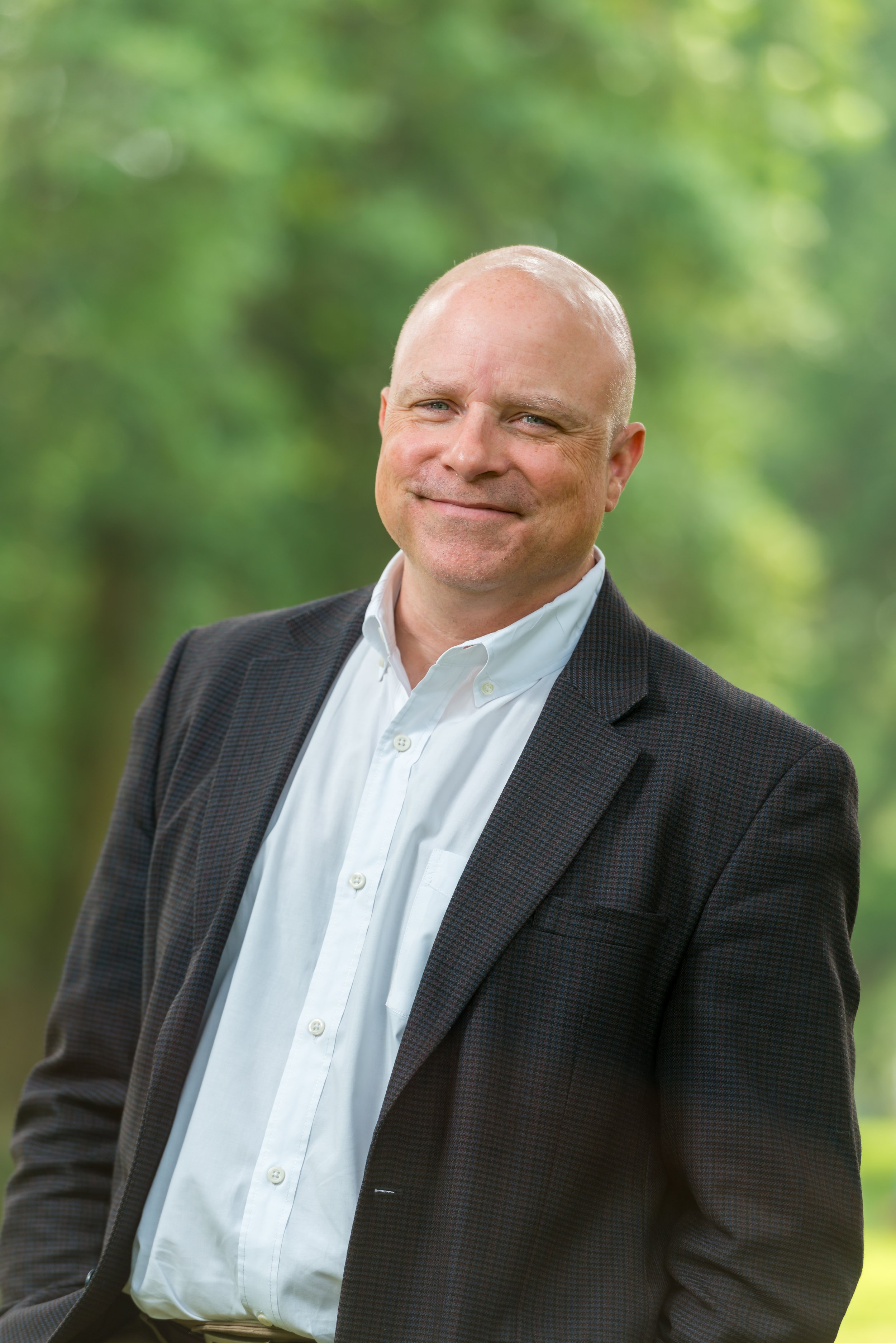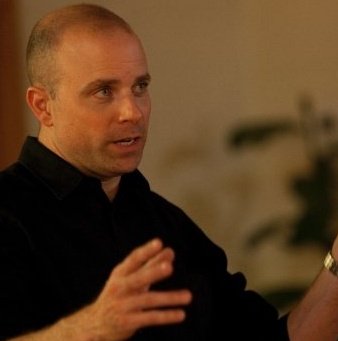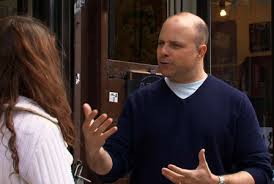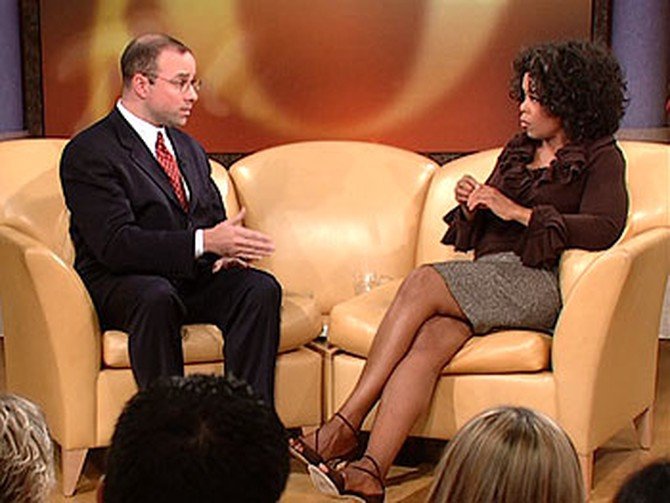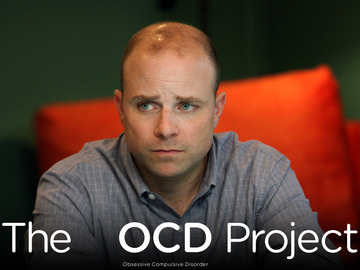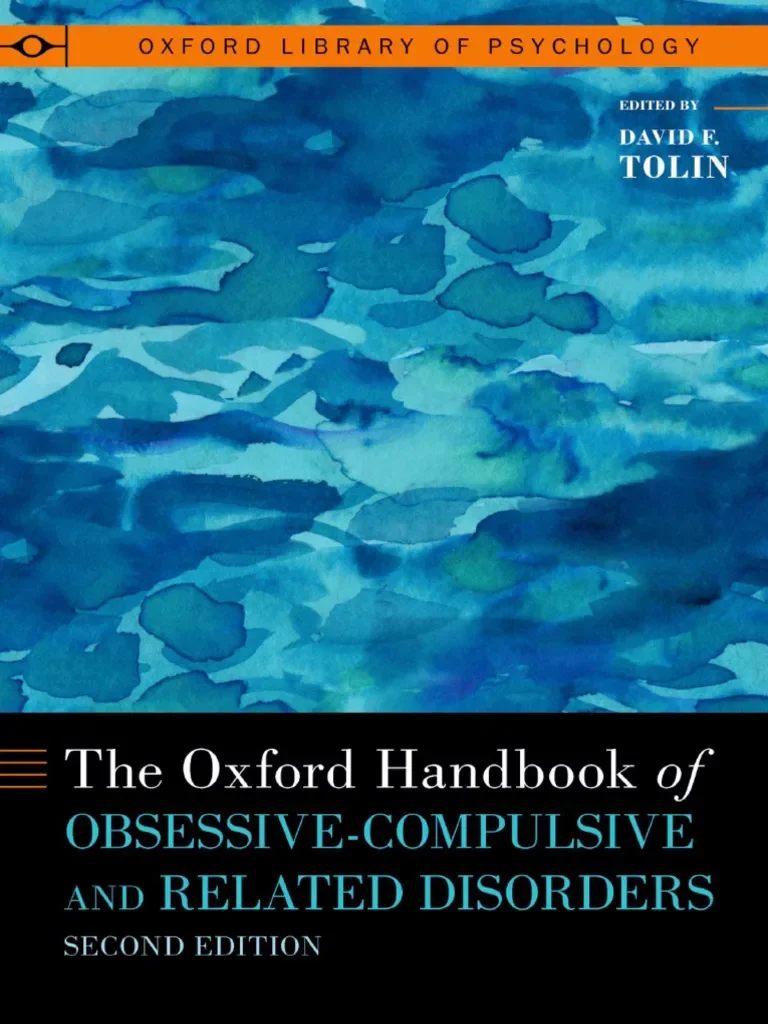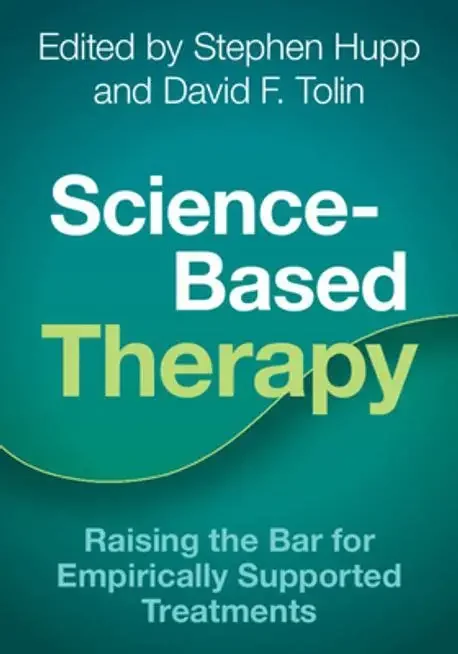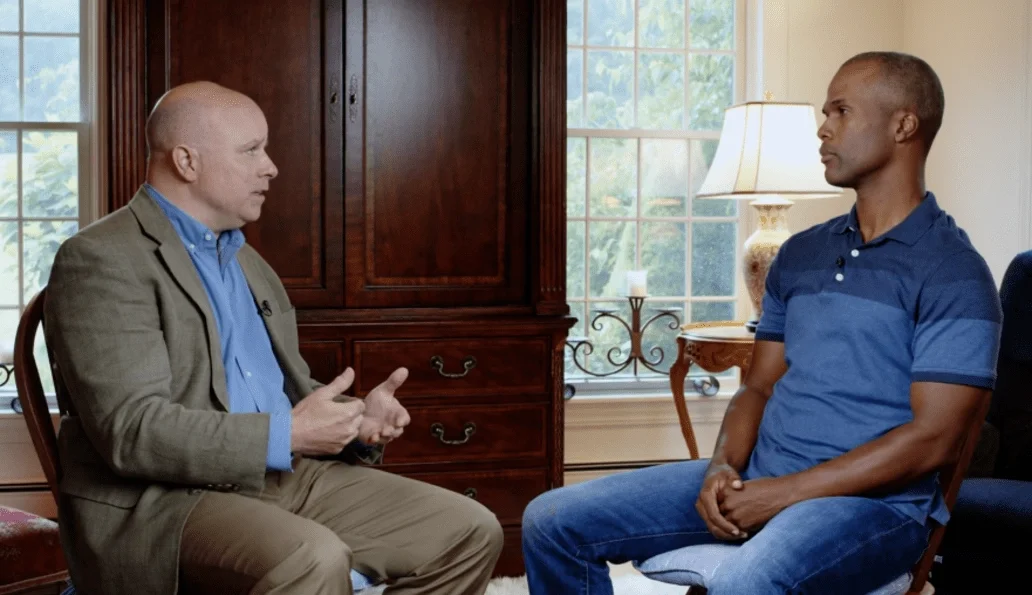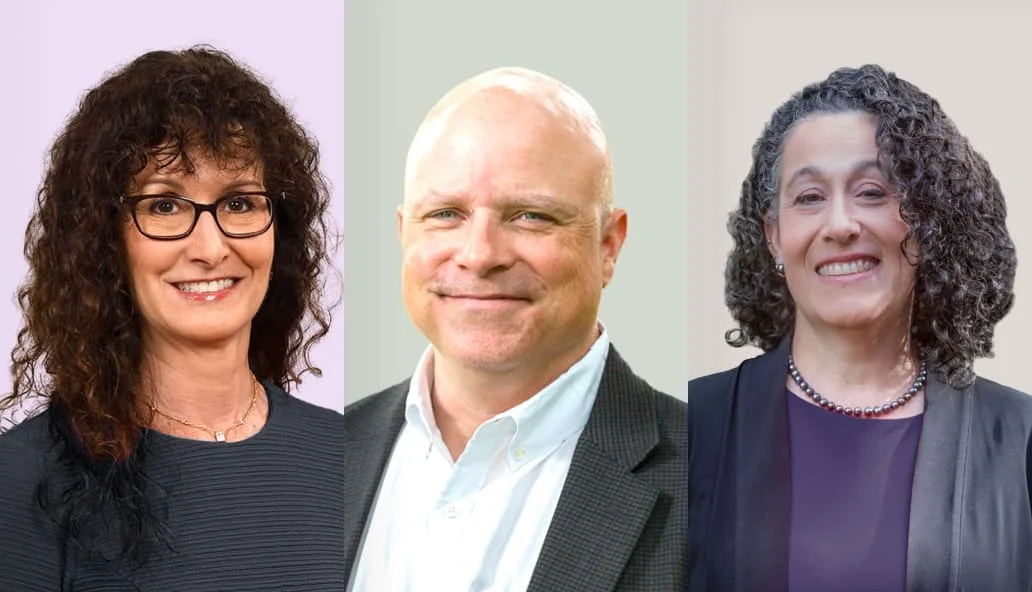Psychologist
About Dr. Tolin
David Tolin, Ph.D., ABPP is the Founder and Director of the Anxiety Disorders Center at the Institute of Living, and an Adjunct Professor of Psychiatry at Yale University School of Medicine.
He is the Past-President of the Association for Behavioral and Cognitive Therapies, the Past-President of the Clinical Psychology Division of the American Psychological Association, and a principal investigator for the National Institutes of Health. He received the Awards for Distinguished Contribution to the Science of Psychology, Distinguished Contribution to the Practice of Psychology, and Lifetime Contribution to Psychology from the Connecticut Psychological Association, as well as the Clinical Science Visionary Award from the Society for a Science of Clinical Psychology.
Dr. Tolin is the author of over 250 scientific journal articles, as well as several books, including Doing CBT: A Comprehensive Guide to Working with Behaviors, Thoughts, and Emotions, Buried in Treasures: Help for Compulsive Acquiring, Saving, and Hoarding and Face Your Fears: A Proven Plan to Beat Anxiety, Panic, Phobias, and Obsessions.
Dr. Tolin has been featured on the reality TV series Hoarders, The OCD Project, and My Shopping Addiction, and has been a recurring guest on The Oprah Winfrey Show.
Private Practice
In addition to his program at The Institute of Living in Hartford, Dr. Tolin maintains a telehealth private practice in Connecticut. The practice specializes in time-limited, solution-focused, evidence-based cognitive-behavioral therapy (CBT).
Groups and problems that can be addressed include, but are not limited to:
Adults and adolescents
Anxiety disorders
Obsessive-compulsive and related disorders
Hoarding disorder
Depression
Stress- and trauma- related problems
Please note that Dr. Tolin is unable to:
Provide advice to people who are not his clients.
Provide treatment to clients outside of Connecticut.
Accept any insurance, though you will be provided with a receipt for reimbursement.
Assist you with finding a therapist in your area. For a directory of CBT therapists, visit www.abct.org.
Hoarders
Dr. Tolin was the first psychologist featured on the A&E series Hoarders, appearing periodically over 16 seasons.
The OCD Project
Dr. Tolin was the host of the 2010 VH1 series The OCD Project, which documented his treatment of six patients suffering from obsessive-compulsive disorder over three weeks.
My Shopping Addiction
Dr. Tolin was co-host of the 2012 Oxygen series My Shopping Addiction, in which he treated patients with compulsive buying behaviors.
Workshops
Dr. Tolin is a highly sought-after speaker for professional groups, community agencies, and consumer groups.
Some of his workshops have included:
Buried in Treasures: Understanding and Treating Hoarding Disorder
Face Your Fears: Conducting Good Exposure Therapy Across Diagnoses
Treating Obsessive-Compulsive and Related Disorders
The Science and Practice of Cognitive Behavioral Therapy
Motivational Interviewing: Helping Clients Get Unstuck
Treating Trichotillomania and Skin-Picking Disorder
CBT for Posttraumatic Stress Disorder
CBT for Anxiety Disorders
Pseudoscience in Mental Health Treatment
Treating Obsessive-Compulsive Disorder with Exposure and Response Prevention
Missteps in the Treatment of Trauma and PTSD
Missteps in the Treatment of Trauma and PTSD, The Institute of Living, Hartford
Treating OCD with Exposure and Response Prevention, The Institute of Living, Hartford
Pseudoscience in Mental Health Treatment, Karolinska Institutet, Stockholm
Reviews
Dr. Tolin consistently draws high attendance and receives excellent training reviews. A rare combination in a trainer, Dr. Tolin is both entertaining and expertly informed. His presentations are organized, easy to understand and engaging. Attendees leave with a thorough understanding of the topic and valuable take-away skills to enhance their clinical practice.
Aili Arisco, Connecticut Women's Health Consortium
The evaluations were great: “What a performance! Not only was this a thorough review of CBT for these OCD-related disorders, but also very entertaining!” “This was exactly what our outpatient clinic needed to begin treatment with these patient groups!” “An excellent combination of the most recent research and great clinical advice from one of the most skilled lecturers I have ever listened to!”
Linda Juris, Ph.D., KBTPsykologerna, Uppsala, Sweden
Dr. Tolin has a gift of being able to present difficult and in-depth material in a down-to-earth manner that makes it interesting and easily understandable. We look forward to the opportunity to have Dr. Tolin speak for us again!
Marnie Mathews, North Shore Elder Services, Danvers, MA
Dr. Tolin is a dynamic speaker on the subject of hoarding, inspiring clinicians to a call to action.
Theion Perkins, Los Angeles County Department of Mental Health
Books
DOING CBT: A COMPREHENSIVE GUIDE TO WORKING WITH BEHAVIORS, THOUGHTS, AND EMOTIONS, SECOND EDITION (Guilford Press)
A masterwork of CBT for the next generation... This book is a "must read" for every clinician, student, and professional who wants to deliver excellent CBT.
Marsha Linehan, Ph.D., University of Washington
Written with clarity, humor and free of pretension. I love this book... To say it's a game-changer is an understatement.
Joel Minden, Ph.D., Private Practice
I have taught a graduate course in our clinical psychology doctoral program for 16 years... and I have never found a text that works. This book, however, is the one I have always wanted. It is practical yet rich with evidence and science, full of humor yet rigorous and richly detailed.
Thad Leffingwell, Ph.D., Oklahoma State University
…on its way to becoming a classic text in the field… “Doing CBT” is an excellent “go to” resource for professional practice, consultation and graduate level training.
Hartmann & Yokley, Case Western Reserve and MetroHealth Medical Center
FACE YOUR FEARS: A PROVEN PLAN TO BEAT ANXIETY, PANIC, PHOBIAS, AND OBSESSIONS (John Wiley & Sons)
Self-Help Book of Merit Award, Association for Behavioral and Cognitive Therapies
If you suffer from problems with panic, anxiety, or phobias, look no further—this is the book for you.
Jonathan Abramowitz, Ph.D., University of North Carolina
Filled with powerful, clear, and evidence-based strategies to alleviate fear and enhance life satisfaction, this book will change lives.
Lizabeth Roemer, Ph.D., University of Massachusetts at Boston
Dr. David Tolin is a master at helping people understand why they are afraid and helping them overcome the problem.
Gail Steketee, Ph.D., Boston University
BURIED IN TREASURES: HELP FOR COMPULSIVE ACQUIRING, SAVING, AND HOARDING (2nd Edition, Oxford University Press)
Self-Help Book of Merit Award, Association for Behavioral and Cognitive Therapies
Buried in Treasures is one of the few books I regularly recommend to clients and other professionals searching for clear, accurate and practical information on hoarders and hoarding behavior. David Tolin and his colleagues distill the latest research and apply a very human touch in this excellent reference.
Peter Walsh, Professional Organizer and Bestselling Author
There are a fair number of self-help books out there on aspects of OCD. Buried in Treasures is among the best of them. People with a hoarding problem should definitely find value in this book. It also belongs on the shelf of many mental health providers because whatever population one is working with will have its share of individuals with this problem.
PsycCRITIQUES
The world's leading experts... have presented their proven, step-by-step treatment in a practical, easy-to-understand format that will be useful to anyone who hoards, as well as any professional who treats this problem. If you are looking for ways to clear your clutter, you need to read this book now!
Martin Antony, Ph.D., Ryerson University
Treating Trichotillomania: Cognitive-Behavioral Therapy for Hairpulling and Related Problems (SPringer)
Treating Trichotillomania... is concise, well written, empirically grounded, and richly filled with clinical examples and samples of patient-therapist dialogue that clearly illustrate the various techniques... this book is essential reading for all clinicians involved in the treatment of TTM.
Steven Taylor, Ph.D., University of British Columbia
A powerful addition... Psychologists and other mental health professionals will find this valuable for their practice. Graduate students will benefit from the advanced knowledge and overall understanding of trichotillomania... This is one of the best books available on trichotillomania, and clinicians are strongly urged to have this invaluable reference on their shelves.
Nicholas Greco
CBT for Hoarding Disorder: A Group THerapy Program (Wiley-Blackwell)
Comprised of a therapist manual and client workbook, CBT for Hoarding Disorder guides group leaders through a comprehensive CBT group program for patients struggling with hoarding disorder. Filling the need created by the inclusion of hoarding disorder (HD) as its own diagnosis in the DSM-5, this program—which was created by a group of four clinical psychologists experienced in research and treatment of problematic hoarding behavior—prioritizes experiential learning, repeated practice, skills building, and real-world discarding progress.
The therapist manual provides step-by-step, evidence-based guidance for treating hoarding with a focus on proven methods for behavior change rather than complex cognitive interventions. It contains the latest research on hoarding disorder and emphasizes the cognitive, emotional, and motivational factors involved in discarding and decision-making. The client workbook features accessible, straightforward content, including coping cards that summarize key lessons, homework assignments, motivational tools, and practice exercises for decision-making and emotion regulation skills. Easy to implement without home visits, this is a cutting-edge treatment program for professionals and group leaders of all educational backgrounds treating problematic hoarding behavior across a wide variety of treatment settings and disciplines.
The Big Book of Exposures: Innovative, Creative, and Effective CBT-Based Exposures for Treating Anxiety-Related Disorders (New Harbinger)
…a cornucopia of creative and effective exposure strategies… If you’re in search of thoughtful guidance on designing and implementing exposures, add this book to your bookshelf. You won’t regret it.
Michael Tompkins, PhD, San Francisco Bay Area Center for Cognitive Therapy
Complete with loads of creative exposure ideas and suggestions, this book is a must for any clinician working with anxious and fearful individuals.
Jonathan Abramowitz, PhD, University of North Carolina
…an invaluable resource for both beginner and advanced clinicians who use, or who would like to use, exposure therapy in their practice. This practical guide is packed with evidence-informed, innovative recommendations for designing in vivo, interoceptive, and imaginal exposures for children and adults with a range of anxiety and related disorders. A ‘must-read’ for clinicians looking to expand their repertoire of clinical skills.
Susan Orsillo, PhD, Suffolk University
This well-written, accessible book is filled with practical tips for conducting exposure therapy for the most common anxiety-related problems. This book will even help therapists to overcome their own apprehension about using exposure therapy, by addressing frequently occurring misconceptions and myths concerning exposure… essential reading for any therapist who treats anxiety disorders, obsessive-compulsive disorder (OCD), post-traumatic stress disorder (PTSD), illness anxiety, and related problems—whether they are a student, novice clinician, or seasoned therapist.
Martin Antony, PhD, Ryerson University
THE OXFORD HANDBOOK OF OBSESSIVE-COMPULSIVE AND RELATED DISORDERS, SECOND EDITION (OXFORD UNIVERSITY PRESS)
With the publication of the Diagnostic and Statistical Manual of Mental Disorders, 5th Edition (DSM-5), much has changed about the conceptualization of obsessive-compulsive disorder and its associated spectrum conditions. Breaking free from the previous category of anxiety disorders, a new diagnostic category of "obsessive-compulsive and related disorders" (ORCDs) has emerged. This new categorization has provided an opportunity to enhance our understanding of these unique disorders and to address new research questions.
The second edition of The Oxford Handbook of Obsessive-Compulsive and Related Disorders presents the latest information, from leaders in the field about the epidemiology, phenomenology, assessment, and treatment of ORCDs. The volume begins by reviewing the prevalence and profiles of obsessive-compulsive disorder, body dysmorphic disorder, hoarding disorder, trichotillomania (hair-pulling disorder), and excoriation (skin-picking) disorder. Chapter authors then discuss modern conceptualizations of the OCRDs, including neurocircuitry, genetic, behavioral, and cognitive models. From here, assessment strategies are reviewed, followed by state-of-the-science biological and psychological treatments, including pharmacotherapy, neurosurgical strategies, behavioral therapies, and cognitive therapies. Finally, the volume examines the presentation and treatment of OCRDs across cultures as well as in special populations including children and older adults.
SCIENCE-BASED THERAPY: RAISING THE BAR FOR EMPIRICALLY SUPPORTED TREATMENTS
This is the first book to analyze empirically supported treatments by using the newest criteria from the American Psychological Association's Society of Clinical Psychology, Division 12. Clinicians, scholars, and students all need to stay updated on the treatment research, and this book goes beyond providing updated treatment information by pointing readers to other useful treatment manuals and websites for continuing to stay up-to-date. The chapters, all written by prominent experts, highlight the best available evidence for specific disorders by breaking treatments down into credible components. With an emphasis on treatments for adults, chapters also share information about treatments for youth. Other variables that influence treatment are discussed, including assessment, comorbidity, demographics, and medication. Each chapter also corresponds with a chapter in the companion book, Pseudoscience in Therapy, presenting a full picture of the evidence base for common treatments.
DIAMOND and DIAMOND-KID
The Diagnostic Interview for Anxiety, Mood, and Obsessive-Compulsive and Related Neuropsychiatric Disorders (DIAMOND) and the Diagnostic Interview for Anxiety, Mood, and Obsessive-Compulsive and Related Neuropsychiatric Disorders-Child and Adolescent Version (DIAMOND-KID) are semi-structured DSM-5 diagnostic interviews with good psychometric properties. Free for download by clinicians, researchers, educators, and students, the DIAMOND and the DIAMOND-KID can be found, along with research articles and training programs, at www.diamondinterview.org.
Contact Dr. Tolin
Please note: Dr. Tolin cannot provide referrals to mental health professionals. You may use this form to inquire about making an appointment in Dr. Tolin's Private Practice, to schedule speaking engagements, or other inquiries. To make an appointment in Dr. Tolin's clinic at the Institute of Living, click here. To find help elsewhere, see the "getting help" links on this page.
Please complete the form below
Getting Help
To find a specialist in your area, we recommend the following web sites:
ONLINE TRAININGS
Dr. Tolin has partnered with Psychwire to produce online trainings in cognitive-behavioral therapy.
Foundational CBT course
Build confidence and strengthen your core therapeutic skills. This beautifully designed foundational CBT training gives you a clear framework for structured, purposeful sessions that support lasting, meaningful change for your clients.
Whether you’re new to CBT or looking to build on your skills, this course provides a research-based framework for working with distress. You’ll learn how to support others (and yourself) through difficult emotions, stuck patterns, and unhelpful thinking. Whether you’re aiming to grow as a practitioner, shift your own mindset, or make a greater impact, this training gives you the skills and tools to achieve it. You’ll learn to think like a CBT clinician, structure sessions with confidence, and use practical strategies with purpose.
And it’s not just what you learn but how you learn it. With lessons that are clear, engaging, and easy to absorb, you’ll stay focused and avoid overwhelm. You’ll leave with practical skills you can use immediately and the confidence to use them well.
By the end of this course, you’ll learn how to:
Structure sessions using the CBT model
Use core CBT techniques to reduce anxiety, lift mood, and shift unhelpful patterns
Identify and work with the thoughts, behaviors, and emotional processes that drive distress
Develop case formulations that guide clear and effective therapy
Integrate mindfulness, emotion regulation, and other third-wave strategies
Use CBT with both structure and sensitivity
cbt for depression
Depression is common, complex, and deeply individual — and one of the most challenging issues therapists face. Fortunately, CBT remains one of the most widely researched and recommended treatments for depression. Decades of clinical studies and international practice guidelines consistently support its effectiveness.
This specialized training gives you clear, real-world CBT tools to treat depression with greater structure and confidence. You’ll learn how to address the thoughts, behaviours, and emotional patterns that keep clients stuck — and how to help them reconnect with activity, meaning, and hope.
Whether you're supporting clients through hopelessness, low motivation, self-criticism, anger, or co-occurring substance use, this course helps you deliver CBT that is structured, compassionate, and clinically effective.
What You’ll Learn
This course goes beyond general CBT training to give you specialized, practical tools for treating depression with confidence and care. You’ll learn how to:
Apply structured CBT approaches to treat depression across diverse clients and presentations
Use behavioural strategies — including behavioural activation — to increase engagement, mastery, and pleasure
Support clients in identifying and challenging unhelpful thoughts and beliefs
Integrate mindfulness, compassion, and emotion-focused strategies when appropriate
Build clients’ skills in key areas such as problem-solving, social skills, assertiveness, and healthy sleep habits
Address depressive symptoms such as low self-worth, anger, and motivational deficits
Move through stuck points and guide clients toward meaningful, sustainable change
You’ll also learn how to flexibly adapt your interventions — meeting clients where they are while maintaining structure, momentum, and clinical clarity.
cbt for trauma
Working with trauma and PTSD requires knowledge, skill, and confidence. This course helps you strengthen your ability to guide recovery with CBT and support clients through the challenges of trauma.
This training shows you how to integrate cognitive and exposure-based approaches — the most well-researched strategies in trauma treatment — into a flexible practice that meets clients where they are. It provides the tools and clinical insight to address PTSD and trauma-related distress in ways that are structured, effective, and compassionate.
Led by globally renowned trauma experts Barbara Rothbaum, co-creator of Prolonged Exposure, Debra Kaysen, an expert in Cognitive Processing Therapy, and David Tolin, bestselling author of Doing CBT, this course gives you direct guidance from leaders who shaped the field. Their teaching shows you how to use CBT approaches that help clients face avoidance, dissociation, flashbacks, and overwhelming distress.
Whether you are treating PTSD or working with trauma-related symptoms across different diagnoses, this course gives you practical ways to support recovery.
